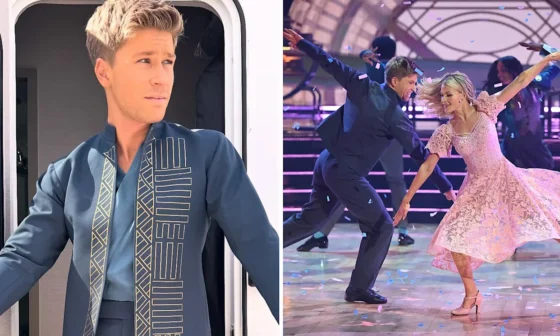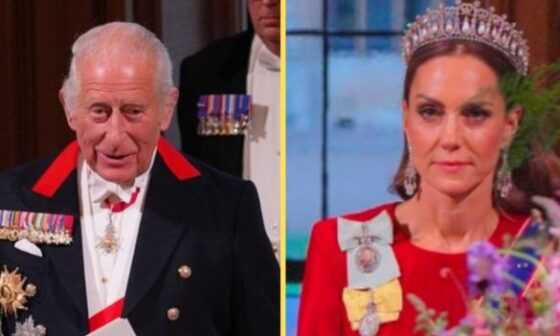The 60th Annual Academy of Country Music Awards didn’t open with a bang. It didn’t need to.
No lasers. No fireworks. No superstar medleys. Just one woman, one spotlight, and a truth that cut deeper than any production cue ever could.
The Stage Was Still. Then Came Reba.
When the house lights dimmed at the Ford Center, it wasn’t the silence that startled the audience—it was the stillness. And into that sacred quiet walked Reba McEntire. Alone. No grand entrance. No backup dancers. Just Reba, grounded and glowing, stepping into the center of the stage like she was walking into her own living room.
She wasn’t there to entertain. She was there to testify.
“For the Ones Who’ve Been Laughed At for Being Real”
She didn’t sing right away. Instead, she paused. Took in the crowd. Let the moment breathe.
Then, voice trembling just enough to feel human, she spoke:
“This is for anyone who’s ever been called a country bumpkin. For anyone who’s been laughed at for being real.”
And just like that, the ACMs weren’t an awards show anymore. They were a revival.

When “Okie from Muskogee” Became a Prayer
Then came the first twang of Merle Haggard’s “Okie from Muskogee.” A song long steeped in irony, history, and cultural baggage. But in Reba’s voice, it was reborn—less protest song, more praise hymn.
She didn’t belt it. She didn’t dress it up. She meant it.
With every line, she poured in pride—not just her own, but that of every person who grew up on gravel roads and Sunday suppers. She sang it like a woman who still knows the smell of fresh hay and the sound of her mama’s screen door slamming shut.
Her voice carried strength without defiance. Humility without apology. And somehow, the words “livin’ right and bein’ free” didn’t sound nostalgic—they sounded necessary.
No Glitter. No Gimmicks. Just Grace.
There were no tricks. Just Reba and a guitar. And a room full of people, some in cowboy boots, some in couture, all caught in the same holy hush.
Tears came. Not just from fans or the old guard. Even the rising stars—some too young to have grown up with this song—looked visibly undone. As if they suddenly understood the weight of what it meant to belong to this music.
A Standing Ovation with No Cue Cards
When she hit the final line—“We still wave Old Glory down at the courthouse”—the audience didn’t clap. They stood. They rose in a wave of gratitude that needed no prompting.
It wasn’t just a standing ovation. It was a release. A reckoning. A thank-you from every person who’s ever felt like their roots made them invisible.
“She Brought the Soul of America to the Stage”
Backstage, ACM executive producer Ben Winston was visibly moved:
“We knew Reba would bring heart. We didn’t expect her to bring the soul of America to the stage.”
And that’s exactly what she did.
As the night wore on—with chart-topping collaborations and social media-ready moments—Reba’s opener stayed with people. It wasn’t the flashiest part of the show, but it was the truth of the show.
Country Isn’t a Costume—It’s a Birthright
Reba didn’t just pay tribute to Merle Haggard. She redefined what country music means right now.
“Country music isn’t a trend,” she said backstage, her voice still soft. “It’s a truth. It’s people’s lives.”
And that’s what made her performance unforgettable: it wasn’t about spectacle. It was about soul. She reminded everyone—stars, fans, executives—that country isn’t something you put on. It’s something you carry. In your voice. In your values. In your walk.
Just Reba. And That Was More Than Enough.
On a night made for legends, Reba didn’t act like one. She acted like someone who never forgot where she came from.
She wasn’t larger than life. She was life—real, rural, weathered, beautiful.
And in those few minutes, standing alone in the quiet glow of a single spotlight, she didn’t just open the show.
She opened every heart in the room.






